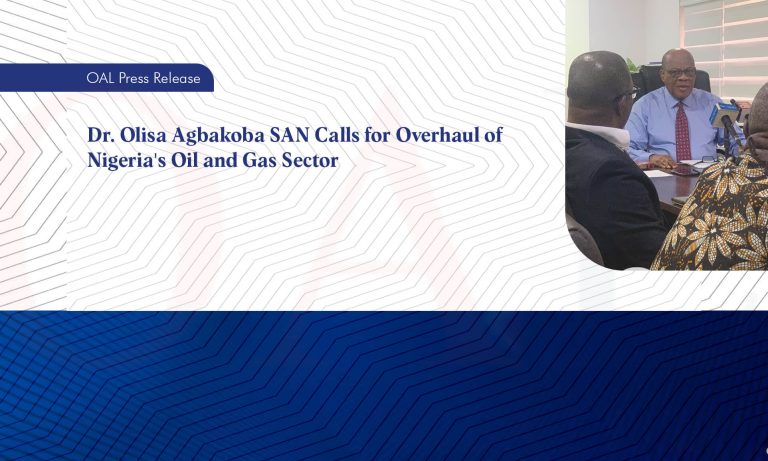
Payment Service Banks in Nigeria (PSBS): A Review of the Proposed Guidelines for Licensing and Regulation by the CBN

The Central Bank of Nigeria (CBN) by its letter dated 5th October 2018, written to all banks, telecommunication companies, mobile money operators, banking agents and the Nigerian Communication Commission, circulated draft guidelines and regulations of Payment Service Banks in Nigeria (PSB) for comments and observations.
The Payment Service Banks in Nigeria is CBN’s initiative to promote a sound financial system in Nigeria in order to enhance access to financial services for low-income earners and unbanked segments of the society.
PSBs are expected to leverage on mobile and digital services to enhance financial inclusion in Nigeria and stimulate economic activities at the grassroots through the provision of financial services.
PSBs will also enable high volume low-value transactions in remittance services, micro-savings and withdrawal services in a secured technology-driven environment to further deepen financial inclusion.
The draft guidelines issued by CBN was issued pursuant to the CBN Act 2007 and (Banks and Other Financial Institutions Act (BOFIA) 1991.
The guidelines cover definition, objectives, and eligible promoters, licensing requirements, corporate governance, business conduct and permissible activities. The requirements for prudential regulation, supervision, Know Your Customer (KYC)as well as risk management of the proposed Payment Service Banks is also covered.
Some of the key provisions of the Regulations include:
1. Objectives of Establishing Payment Service Banks in Nigeria:
Section 2 of the proposed regulations reiterate the objective of setting up payment service banks as primarily to enhance financial inclusion in Nigeria, especially in rural areas by increasing access to deposit products, payment services to small businesses, low-income households and other entities through high-volume low-value transactions in a secured, technology-driven environment.
2. Structure of Payment Service Banks in Nigeria:
The structure for establishment of PSBs is provided in Section 3 and includes; operations in rural areas and unbanked locations with not less than 50% physical access points, establishment of ATMs in some of the areas, operation through banking agents, use of other channels including electronic channels, establishment of coordination centers, technology-driven operations, and setting up of help desks strategically to attend to consumer-related issues.
3. Permissible And Permissible Activities of Payment Service Banks in Nigeria:
Section 4 (4.1) and (4.2) of the proposed guidelines provide the services PSBs shall carry out. They include maintaining savings accounts and accepting deposits from individuals and small businesses, carrying out payments and remittance services through various channels within Nigeria, issuing debit and pre-paid cards, operation of the electronic purse, investment in FGN and CBN securities.
PSBs are however restricted from granting any form of loans, advances and guarantees, trade in the foreign exchange market, insurance, underwriting or undertaking any transaction not prescribed by the guidelines. It is also mandatory for a PSB to use the words “Payment Service Banks” in its name to differentiate it from other banks.
4. Eligible Promoters:
Eligible promoters include Banking agents, Telecommunications companies (through subsidiaries) retail chains and mobile money operators. The list is however not exhaustive and CBN is at liberty to consider other entities not provided in the guidelines.
5. Licensing Requirements for Payment Service Banks in Nigeria:
By the provisions of Section 6 of the guidelines, a PSB license is required. Promoters of PSBs are required to submit a formal application in this regard to the Governor of the Central Bank. An Approval in Principle will first be granted within 90 days of the application for the establishment of a PSB, and not later than 6 months after the grant of an Approval in Principle; a Final License will be granted.
a. Approval in Principle: The requirements for the grant of approval in principle are as contained in Section 6.1 of the guidelines. The requirements include payment of an application fee, evidence of minimum share capital, name reservation, business plan or feasibility report, draft copy of Memorandum and Articles of Association, Undertaking to meet capitalization requirements, Shareholders Agreements, Technical Services Agreement, Financial Management Policy, anti-Money Laundering and Combating Financing Terrorism Policy, Code of Ethics etc.
b. Final License: For a final license to be granted pursuant to Section 6.2, the CBN shall conduct an inspection of the premises and facilities of the proposed PSB, sight original copies of documents submitted, meet with the board and management, verify capital contributions and verify the integration of its infrastructure with the National Payments System.
6. Requirements For Commencement Of Operations And Post-Commencement Requirements:
As provided in Section 6.4 and 6.5 of the proposed guidelines, the PSB shall through a letter inform the CBN of its readiness to commence operations and the application shall be accompanied a by a list of documents specified.
A PSB as part of the post-commencement requirements is also mandatorily required to comply with all guidelines and regulations issued by CBN, maintain adequate accounting system and records, maintain an unimpaired minimum capital at all times and comply with the requirements incidental to the authorization to perform banking operations as stipulated by CBN.
7. Financial Requirements for Payment Service Banks in Nigeria:
The financial requirements are as provided in Section 6.6 of the proposed guidelines and are as follows:
a. Minimum Capital N5,000,000,000.00
b. Non-refundable application fee N500,000.00
c. Non-refundable License Fee N2, 000,000.00
The share capital deposit as stated by the guidelines is subject to availability of instruments and upon the grant of a license or otherwise, the CBN shall refund the sum deposited together with the investment income if any, after-tax and administrative expenses have been deducted.
8. Corporate Governance And Business Conduct (Fair Competition):
Section 7 provides that the code of corporate governance applicable to banks as well as the Revised Assessment Criteria for Approved Persons’ Regime for Financial Institutions shall be applicable to PSBs.
The proposed regulations further provide that where a PSB is related to an existing infrastructure service provider which provides services to other financial institutions, the PSB shall ensure that its dealings with the infrastructure provider are at arm’s length.
 The guidelines interestingly incorporate a provision to ensure fair competition amongst PSBs. Section 8 of the proposed guidelines mandate a parent company of a PSB which renders services to its subsidiary PSB, to also offer the same services to other PSBs on the same terms and conditions.
The guidelines interestingly incorporate a provision to ensure fair competition amongst PSBs. Section 8 of the proposed guidelines mandate a parent company of a PSB which renders services to its subsidiary PSB, to also offer the same services to other PSBs on the same terms and conditions.
It also prohibits parent companies of Payment Service Banks in Nigeria from offering any preferential treatment, which negates fair competition, to its subsidiary. The failure to abide by the fair competition clause may lead to revocation of the PSB license.
9. Capital Adequacy Ration And Investment Of Deposit Liabilities:
The capital adequacy ratio of a PSB shall be measured as a percentage of the shareholders’ funds unimpaired by its risk-weighted assets.
The minimum capital adequacy ratio shall be 10% or as may be prescribed by the CBN. PSBs shall be required to maintain not less than 5% of their deposits in treasury bills and other short terms Federal Government debt instruments at any point in time.
10. Supervision, KYC Requirements And Risk Management:
PSBs shall be supervised by the CBN and shall comply with the relevant provisions of the Money Laundering (Prohibition) Act, Terrorism Prevention Act, CBN AML/CFT Regulations for banks and other financial institutions and other extant laws and regulations on KYC issued by the CBN.
Primarily, since Payment Service Banks in Nigeria are prohibited from granting loans, provisions of credit risk management do not apply. However, management of other risks shall be as applicable to Direct Money Banks as may be prescribed by the CBN.
Conclusion / Recommendations
Without any doubt, the establishment of Payment Service Banks in Nigeria is a welcome development particularly as it aims to promote financial inclusion and enhance access to financial services. It also provides investment and employment opportunities for promoters as well as service providers.
However, a critical review of the proposed guidelines with specific reference to restrictions contained in the guidelines appears to be a deal-breaker. The restrictions with respect to the scope of services a PSB can render including restriction on advancing loans, restriction on investment platforms, capital and mandatory infrastructural requirements all appear to be disincentives to the establishment of a PSB is a worthy venture.
It has been argued that the establishment of a PSB pursuant to the proposed guidelines may not be profitable.
As a corollary, the unavailability of some services including loans advancement may seem to defeat the purpose of establishing PSBs. This is because the low-income earners and unbanked segments of the society, who are the target market, are still left out of vital financial services thus defeating the primary purpose of establishing the PSB.
The CBN claims that by establishing the Payment Service Banks in Nigeria, it aims to enhance financial inclusion and stimulate economic activities at the grassroots through the provision of financial services however this may likely not be achieved having regard to the proposed guidelines.
It is comforting that the guidelines have not been finalized and can still be reviewed. It is suggested that the CBN in reviewing the guidelines reduce the restrictions and offer more incentives to make the PSB more attractive to investors.
This would also enhance services available to the target market and ensure that purpose of establishing the PSB is achieved. It is our recommendation that in finalizing the regulations the CBN takes into account contributions from core stake-holders to the proposed regulations to ensure that mutually beneficial guidelines are issued.
The content of this article is intended to provide a general guide to the subject matter. Specialist advice should be sought about your specific circumstances.
Written by – Adebola Sobowale (Partner, Debt Recovery & Insolvency)
Author



